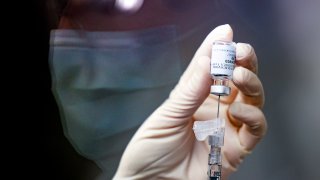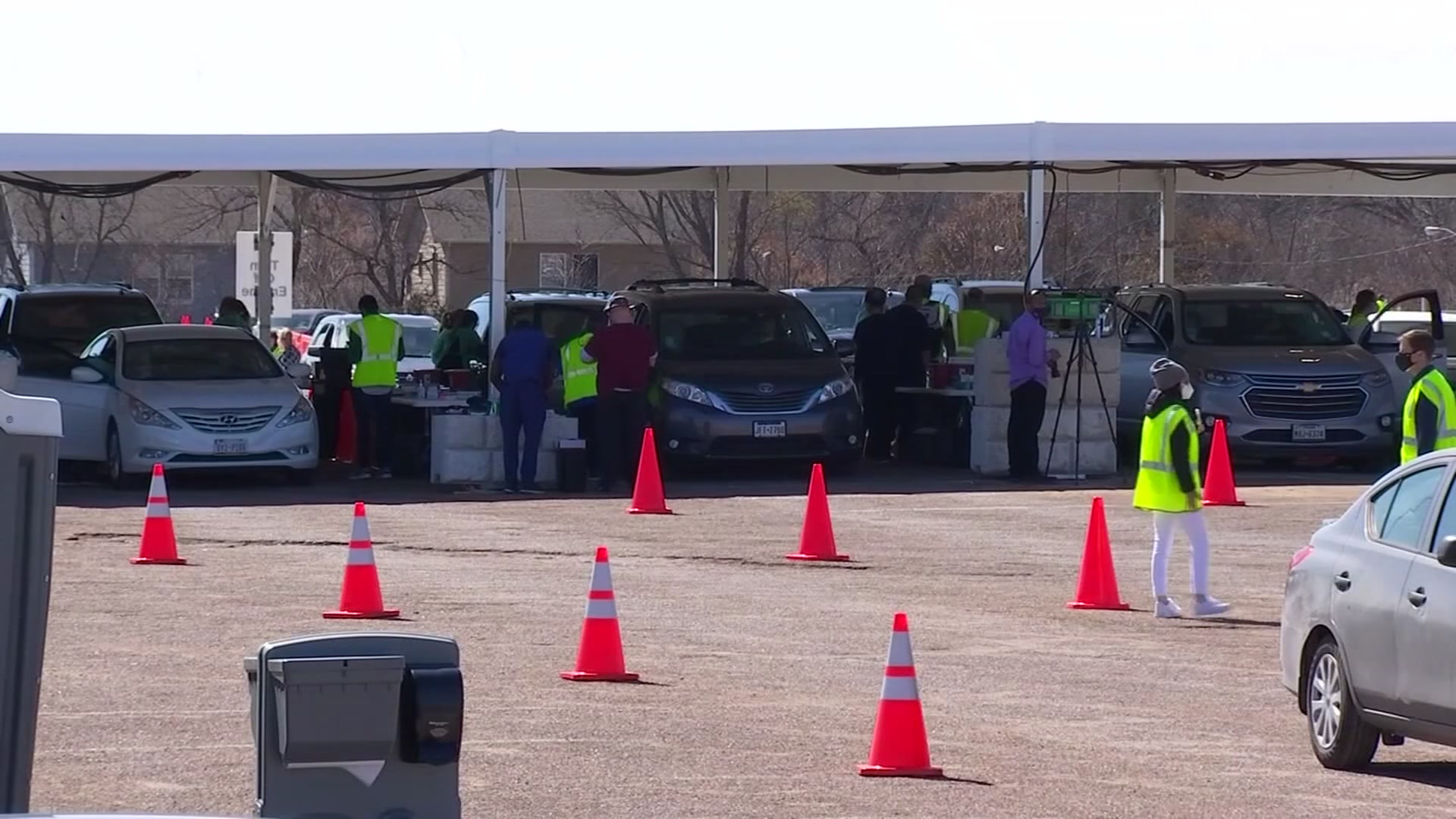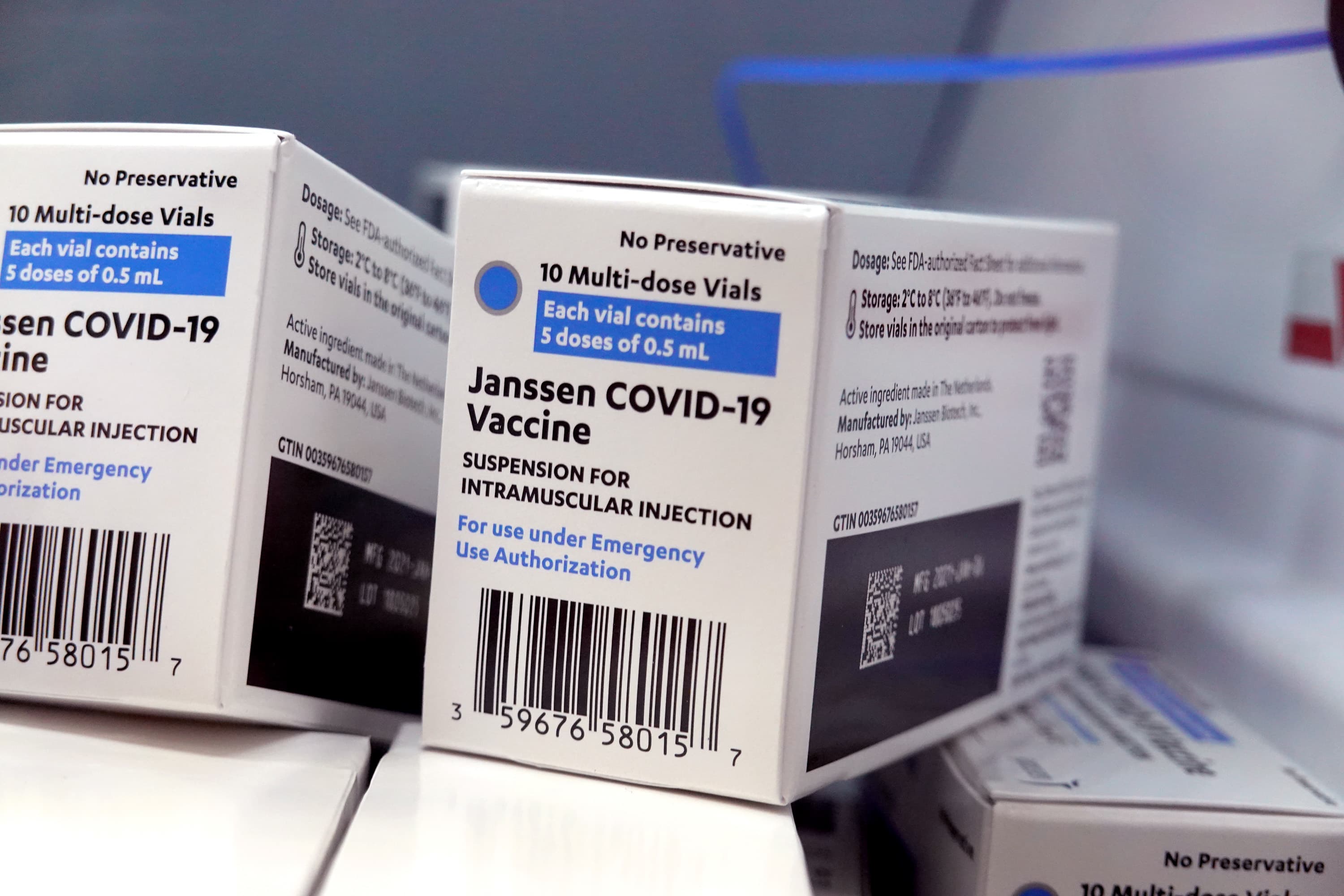
The temporary halting of administering the Johnson & Johnson vaccine will have little effect on Dallas County's path to herd immunity, according to the Parkland Center for Clinical Innovation.
PCCI said in a statement Tuesday that hitting pause on the J&J single-shot vaccine "will not significantly impact the PCCI initial estimate for Dallas County's path to herd immunity by June," according to Steve Miff, PCCI president and CEO.
Miff said Dallas County was progressing toward herd immunity at a rate of about 3% per week, which was ahead of initial projections. Only 4% of the vaccines administered in Dallas County thus far have been the J&J vaccine with 61% being the Pfizer vaccine and 35% being the Moderna vaccine, PCCI said.
COVID-19 Vaccines
Get DFW local news, weather forecasts and entertainment stories to your inbox. Sign up for NBC DFW newsletters.
"While the allocations for J&J were scheduled to increase and the latest developments will pause those vaccinations likely for several weeks, we forecast that Dallas County will continue to make progress at 2-2.5% per week, which maintains the pace for mid-June," Miff said in a statment.
Miff said the FDA's action to temporarily suspend administrations of the vaccine was done out of an "abundance of caution" and is "a strong signal of how responsive they are to any potential safety concerns."
In a joint statement Tuesday, the Centers for Disease Control and Prevention and the Food and Drug Administration said they were investigating unusual clots in six women that occurred 6 to 13 days after vaccination. The clots occurred in veins that drain blood from the brain and occurred together with low platelets. All six cases were in women between the ages of 18 and 48.
"While the risk benefit ratio of continuing to use J& J vaccine in the US COVID-19 vaccination plan may still make sense given the 1:1000 mortality rate of COVID-19, prudence to understand the situation given the FDA emergency use authorization for use is warranted," Miff said in a statement.
More than 6.8 million doses of the J&J vaccine have been administered in the U.S., the vast majority with no or mild side effects.
The reports appear similar to a rare, unusual type of clotting disorder that European authorities say is possibly linked to another COVID-19 vaccine not yet cleared in the U.S., from AstraZeneca.
"While the risk benefit ratio of continuing to use J& J vaccine in the US COVID-19 vaccination plan may still make sense given the 1:1000 mortality rate of COVID-19, prudence to understand the situation given the FDA emergency use authorization for use is warranted," Miff said.
Got a question about the COVID-19 vaccine? Get the answers here in our FAQ.
COVID-19 Vaccine Information
COVID-19 Vaccines
In Texas, the COVID-19 vaccines are currently available to anyone over the age of 5. The vaccines are still not approved for children younger than 5 however -- those trials are ongoing.
Once vaccinated, people who received either the Moderna or Pfizer vaccines are expected to get some level of protection within a couple of weeks after the first shot, but full protection may not happen until a couple of weeks after the second shot. For those who receive the Johnson & Johnson vaccine -- there is only one shot needed.
As of Jan. 3, 2022, it is also recommended those who are age 12 and up and who have been fully vaccinated receive a booster as early as five months after their last dose, for a total of three shots. The vaccine made by Pfizer and its partner BioNTech is the only U.S. option for children of any age.
As for even younger children, kid-size doses for 5- to 11-year-olds rolled out in November and experts said healthy youngsters should be protected after their second dose for a while. But the FDA also said on Jan. 3, 2022, that if children that young have severely weakened immune systems, they will be allowed a third dose 28 days after their second. That’s the same third-dose timing already recommended for immune-compromised teens and adults.
Pfizer and Moderna are studying their vaccines, in even smaller doses, for children younger than 5.
Even when fully vaccinated, it's still possible to become infected by the virus since none of the vaccines offer 100% protection from infection. With that in mind, even if you've been vaccinated it's still a good idea to wear a mask and keep some separation between strangers or those whose vaccination status is unclear.



